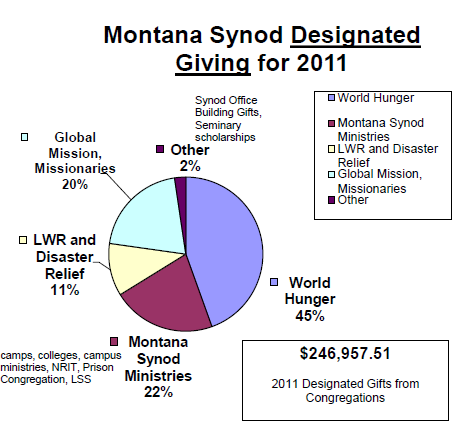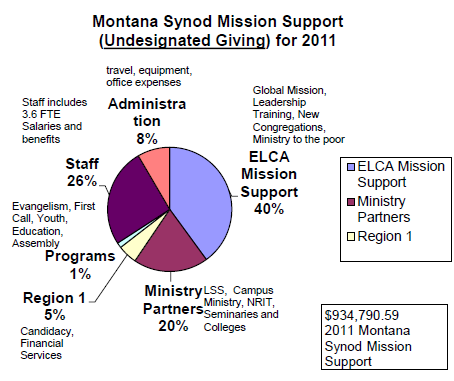|
This evening, September 24, Rosh Hashanah begins. It is the celebration of the Jewish New Year, and the start of the 10 day holy period that concludes with Yom Kippur, the Day of Judgment. These are the highest holy days on the Jewish calendar. Like Passover and Easter, the High Holy Days follow a lunar calendar. So they are not tied to a permanent date on the calendar that we use in daily life.
Thirteen years ago the High Holy Days were earlier in September, right after September 11. The Jewish community in Great Falls was in a quandary. They normally had their services in the chapel at Malmstrom Air Force Base, but the country was on high alert, and Malmstrom was off-limits to civilians. A neighbor of mine, a leader in the Jewish community, asked me if I could think of any place where they might have services. I suggested my congregation, Bethel. The pastor and leadership at Bethel readily agreed. They knew how important it was for the Jewish community to have a safe and accessible place to worship. And they opened their doors. The Jewish community had a place for the holidays. Pretty soon the question arose—why not continue this relationship? Mostly it is a relationship of hospitality—the Jewish community uses Bethel space on Friday nights when Bethel is not there. They have shared a Seder meal with us, and we had deep conversations together about a photography exhibit on the Holocaust. At times there are conflicts—like when Rosh Hashanah starts on a Wednesday night when the church has Logos. Over the years, Bethel and the Jewish community have found ways to make it work—good communication and planning, flexibility, and willingness to move. This year Bethel will move Logos to the park across the street to accommodate the Jewish High Holidays. Lutherans and Jews have not always been so cordial. It was common in Luther’s day to condemn Jews as “Christ-killers.” In 1492, Ferdinand and Isabella not only commissioned Christopher Columbus. They also expelled all the Jews from Spain. (They were welcomed in Muslim countries at the time, and allowed to pursue their religion.) Europe was not a welcoming place for Jews, by and large. Martin Luther had great hopes for Jews. He thought that if they only had a chance to hear the Gospel in its pure form, they would surely convert. When they did not, he expressed his disappointment with the bitterness and vitriol of a cranky old man. Unfortunately, his most destructive words were enshrined by Nazis, and used as justification for their toxic anti-Semitism. As Lutherans, we bear Martin Luther’s name, but we do not accept all his writings or opinions. We are, first and foremost, Christians, followers of Jesus, who was himself a Jew. About 2 decades ago the Lutheran World Federation and the ELCA repudiated the anti-semitic and anti-Judaic words of Martin Luther and apologized to the Jewish community world-wide. In 1995, the Montana Synod and the Montana Association of Jewish Communities entered into an historic agreement of mutual support and respect. You can find it on our website. I am honored that members of the Jewish community participated in my installation as Bishop. And I cherish the ways that our communities continue to work together. During these next ten days, greet your Jewish neighbors, and wish them well. Remember, Jesus was a Jew. Jessica Crist, Bishop
0 Comments
Dear Partners in Christ,
“So if anyone is in Christ, there is anew creation: everything old has passed away; see, everything has become new!” (II Corinthians 5:17) January 1, 1988 was the first day of the Evangelical Lutheran Church in America. Now, 25 years later, we have the opportunity to look back on 25 years, and to look forward to our future as congregations of the ELCA. Annual meetings are a time to check in on the activities of the past year, and to make plans for the future. I greet you as you gather in your annual meeting. In 2012 many congregations of the Montana Synod had opportunity to attend the Synod’s “High, Deep and Wide” events and learn some new tools for growth and outreach. Each congregation that attended was paired with another congregation. And each was challenged to try some new things. If your congregation was not able to attend, look for notice of additional sessions this spring and fall. In anticipating the 25th anniversary of the ELCA and the Montana Synod, the Synod Council developed five benchmarks by which to measure our work as a synod. I hope you will adopt them, too. They are: Face the future boldly. Serve the world, especially the poor and those in need. Deepen faith and witness. Promote unity. Strengthen congregations. As you meet in your Annual Meeting, discuss how your congregation’s goals and plans dovetail with these synodical priorities. We thank you for your partnership in the Gospel. May God bless you and your ministry. In Christ, Jessica Crist, Bishop Our Mission: "Marked by the cross of Christ forever, abundantly blessed, we faithfully serve God and neighbor." Our Vision: "Every person a witness, Every minister equipping witness, Every congregation and ministry, empowered for witness, serving faithfully." The Montana Synod will measure its own faithfulness to our mission and vision and to the task of providing leadership to the Montana Synod by the following benchmarks: 1. Meet the future boldly. For surely I know the plans I have for you, says the LORD, plans for your welfare and not for harm, to give you a future with hope. Then when you call upon me and come and pray to me, I will hear you. When you search for me, you will find me; if you seek me with all your heart. (Jer 29:11-13) We will take risks for the sake of the Gospel, remembering that Jesus said that whoever wants to save your life will lose it, and the only way to be a disciple is to pick up a cross and follow. We will learn from our conversations with congregations and we will model faithful, visionary ministry that is more prophetic than safe. 2. Serve the world, especially the poor and those who are in need. We will be able to articulate how everything that we do, everything that we advocate, everything that we commit time and money to will serve the world, remembering that the Gospel of John tells us that God so loved the world as to give Jesus, for the whole world. Through direct action, advocacy and cooperative work, we will minister to the poor, the poor in spirit, the forgotten and neglected. Realizing that this mission field is limitless, we will encourage coalitions, cooperation and establishment of meaningful priorities. For God so loved the world that he gave his only Son, so that everyone who believes in him may not perish but may have eternal life. Indeed, God did not send the Son into the world to condemn the world, but in order that the world might be saved through him. (John 3:16-17) 3. Deepen faith and witness. We remember that Jesus called us to go and make disciples of all nations. We will support and encourage congregations to remain faithful in worship, Word and Sacrament. We will support congregations as they encourage their members to grow in faith and to broaden their witness in their communities and beyond. "All authority in heaven and on earth has been given to me. Go therefore and make disciples of all nations, baptizing them in the name of the Father and of the Son and of the Holy Spirit, and teaching them to obey everything that I have commanded you. And remember, I am with you always, to the end of the age." (Matt 28:18-20) 4. Promote unity. If then there is any encouragement in Christ, any consolation from love, any sharing in the Spirit, any compassion and sympathy, make my joy complete: be of the same mind, having the same love, being in full accord and of one mind. Do nothing from selfish ambition or conceit, but in humility regard others as better than yourselves. Let each of you look not to your own interests, but to the interests of others. Let the same mind be in you that was in Christ Jesus (Phil 2:1-5) We remember Paul’s image of the body of Christ. We will maintain a clear sense of who we are and whose we are. We will celebrate our diversity within the unity that is ours in Christ. We will give thanks for our many gifts of the Spirit as we explore our different responsibilities within the body. 5. Support congregations. For you were called to freedom, brothers and sisters; only do not use your freedom as an opportunity for self-indulgence, but through love become slaves to one another (Gal 5:13) We are a resource to congregations and pastors. The Synod leadership, staff and volunteer, will provide support to congregations to empower them to live out their calling as centers of mission. We will encourage and support the development of networks among clergy, lay leaders and congregations. To download this letter as a pdf click here. |
Bishop Jessica Crist
Bishop of the Montana Synod of the ELCA Archives
August 2019
Categories |

